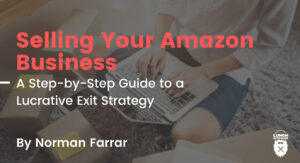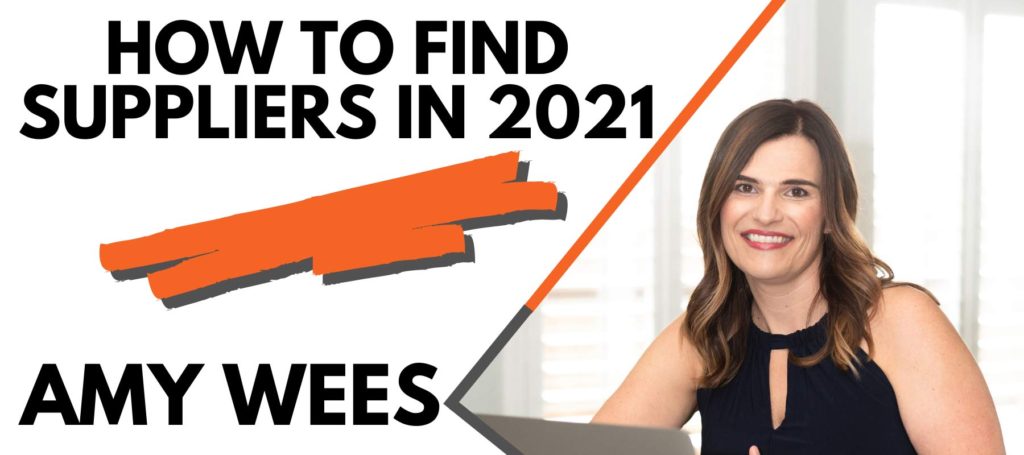

With all travel shut down during the COVID-19 pandemic, many are struggling to find suppliers for their products. In the Amazing at Home community, we encourage private label brand owners to source in person through factory visits and by attending Tradeshows whenever possible. Since our regular visits to the Canton Fair, ASD, and other popular trade shows have been canceled and replaced with virtual options, we are left with fewer options to find reputable suppliers.
Since in-person sourcing may not be available for some time, I wanted to take the time to write a blog providing various methods for finding suppliers.
Before we get into some alternative sourcing options, there are some rules to follow to protect yourself when sourcing and to ensure you find the right supplier.
Know how a product like yours is made so you can have productive conversations with suppliers and more easily vet the supplier you’re talking to.
For example, if you know your product is made with injection molding you can expect to see photos of this process at a supplier that specializes in this process. If you only see photos of people working on an assembly line, you might be talking to a trading company and not a manufacturer. To learn how your product is made, google it or watch the How it’s made documentary series.
Trading companies are fine for stock products as long as the pricing is fair, but if you are developing a product, you will want to ensure you enter into a contract with the manufacturer making the product so you can protect your designs and supply chain. For more information on when to work with a factory versus a trading company, check out this snippet from my Seller Round Table Podcast.

You don’t start a partnership with a contract, instead, you first get to know the person and whether they are a good fit for you.
Remember, that supplier is also judging you based on this first conversation. They want to know you are a good partner. So start by asking more about them, their factory, number of employees, location, ports, export licenses, how long they’ve been in business, etc.
Then get into talking about a product they produce so you can learn whether that product can be differentiated and how much they can tell you about that manufacturing process, primary export markets for that product, whether or not the manufacturer also sells this product online, etc.
There are risks in any business endeavor. You never know how well someone else is running their business or whether they are the right partner for you until you check resources and ensure they are who they say they are.
I’ve heard many horror stories about people paying money to a supplier and that supplier suddenly disappearing with nothing to be found at the business address. Many have had their designs stolen or if you are unknowingly sourcing from a third party instead of the factory making your designs, they could then sell your products to other trading companies where they can be easily sourced by your competitors.
The first step to vetting your suppliers is having a conversation as we mentioned in the step before this one. Have that discussion via video chat if possible and ask them to show you around. Body language also says a lot during a conversation.
Next, vet your suppliers by checking their business license and ensuring that the information on the license lines up with what they told you about their company. Suppliers at tradeshows proudly display their business license so it isn’t abnormal for you to ask for a copy.
Third, look up their website on a Whois domain search to find out how long that domain has existed and if that lines up with what you know about them. Third, check supplier blacklists online and google them to find out if they’ve been reported for any foul play.
For an in-depth walkthrough of vetting your suppliers, check out this interview with V-Trust inspection agency.

Now that you know the rules of sourcing, you’re ready to start hunting for the right supplier for your products. Remember, the cheapest supplier isn’t always the best supplier. You want a partnership where both parties are making money and vested in the project.
Below are six methods of finding suppliers. As long as you use the rules of sourcing given in this article, you can have success with any of these methods.
such as Alibaba, Global Sources, India Mart, Thomasnet, Mfg.com and 1688 are the most obvious option to find suppliers. Each one offers wholesaler and factory options from multiple countries and types of manufacturing processes.
Learn the filtering options for each platform and take the time to go through each supplier’s web page to learn more about them before reaching out. Many of these platforms also offer supplier matching services so be sure to check out all the options.
Look for your competitors’ suppliers. Import records are public in the USA. You can use sites like Importyeti.com, panjiva.com and software such as Zonguru and Helium10 which offer ways to find suppliers by searching for competing products and viewing the suppliers of those products.
Learn your manufacturing process and Google for example “cut and sew manufacturers Mexico”. Many suppliers have their own websites and a simple google search can go a long way.
Another great search term to use is private label. For example, if you are looking for a soap manufacturer who will allow you to put your own brand name or private label on their product, you can search “private label soap manufacturers usa”
If you already have a supplier you trust, ask them for a referral. They may have someone in their network to refer you to. On the contrary, if you don’t know anything about that supplier and haven’t really started working with them yet, do not trust a referral and always vet the referral yourself.

If you register for Tradeshows that have now gone virtual like Canton Fair, ASD, and many many more, not only can you attend online for free, you’ll also receive an exhibitor list and sometimes even access to an app where you can search for suppliers by product type.
It’s important to note that most suppliers that are at the Canton Fair and other tradeshows are not listed on Alibaba, so it’s worthwhile to explore this option. To find great tradeshows, search online for your industry + tradeshows for example, “pet industry tradeshows”
If you’d like to explore the virtual Canton Fair with other e-commerce sellers, Amazing at Home hosts a free Facebook group for this purpose.
The last but not least method for finding suppliers is via sourcing agents and sourcing agencies. A sourcing agent can be your person on the ground in that country. They can visit your factory when you can’t. They may also have trusted relationships with various factories and can help you negotiate better prices. Referrals are the best source for finding reputable sourcing agents.
Be sure to follow the rules of sourcing when interviewing and considering sourcing agents, they need to be your partner just as a supplier would. They should have experience with your product type and you’ll want to check their references just like you’d check a supplier’s business license.
That’s it! I hope you found these methods helpful for finding suppliers for your products. Reach out to us anytime for resources for bringing your product to market, we can help you every step of the way from concept to launch.

Amy Wees is the CEO of Amazing at Home E-Commerce Consulting. Her coaching focuses on helping brands develop unique products, validate them in the marketplace, source at profitable margins, and launch with amazing brand messaging, copywriting, and search engine optimization.
Amy’s courses and consulting were ranked third in the world in the 2020 seller poll (https://sellerpoll.com). She shares her skills teaching classes at business organizations locally in San Antonio Texas, coaching entrepreneurs around the world through virtual coaching sessions and in-person sourcing trips in China at (https://Amazingathome.com). She also covers these concepts on her E-Commerce Tips and Tricks podcast called “The Seller Round Table” (https://sellerroundtable.com/)

Amy Wees is the CEO of Amazing at Home E-Commerce Consulting. Her coaching focuses on helping brands develop unique products, validate them in the marketplace, source at profitable margins, and launch with amazing brand messaging, copywriting, and search engine optimization.
Amy’s courses and consulting were ranked third in the world in the 2020 seller poll (https://sellerpoll.com). She shares her skills teaching classes at business organizations locally in San Antonio Texas, coaching entrepreneurs around the world through virtual coaching sessions and in-person sourcing trips in China at (https://Amazingathome.com). She also covers these concepts on her E-Commerce Tips and Tricks podcast called “The Seller Round Table” (https://sellerroundtable.com/)